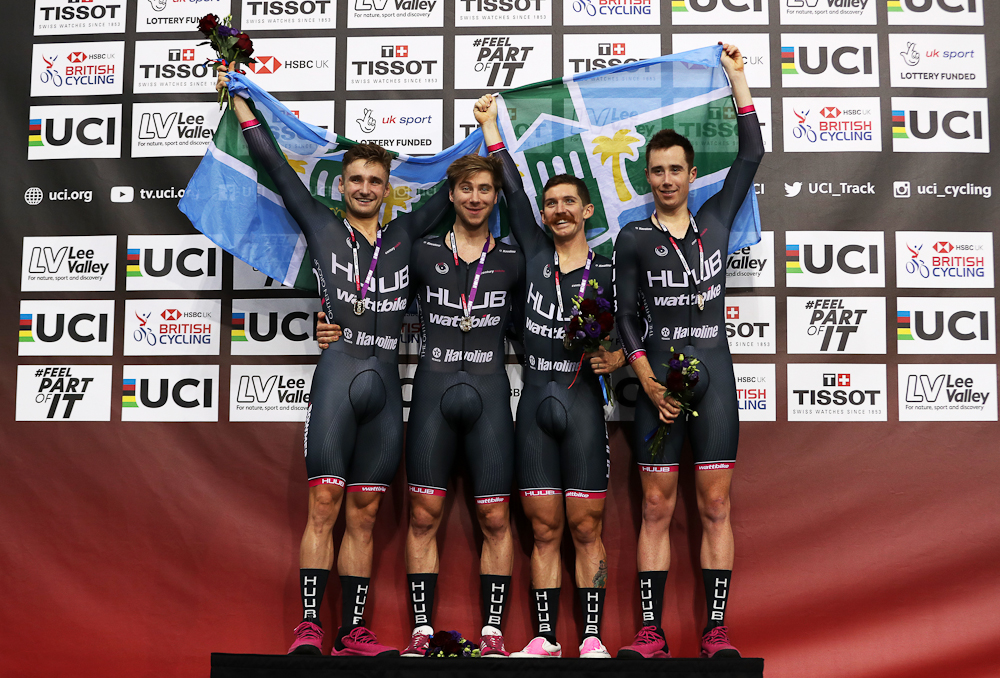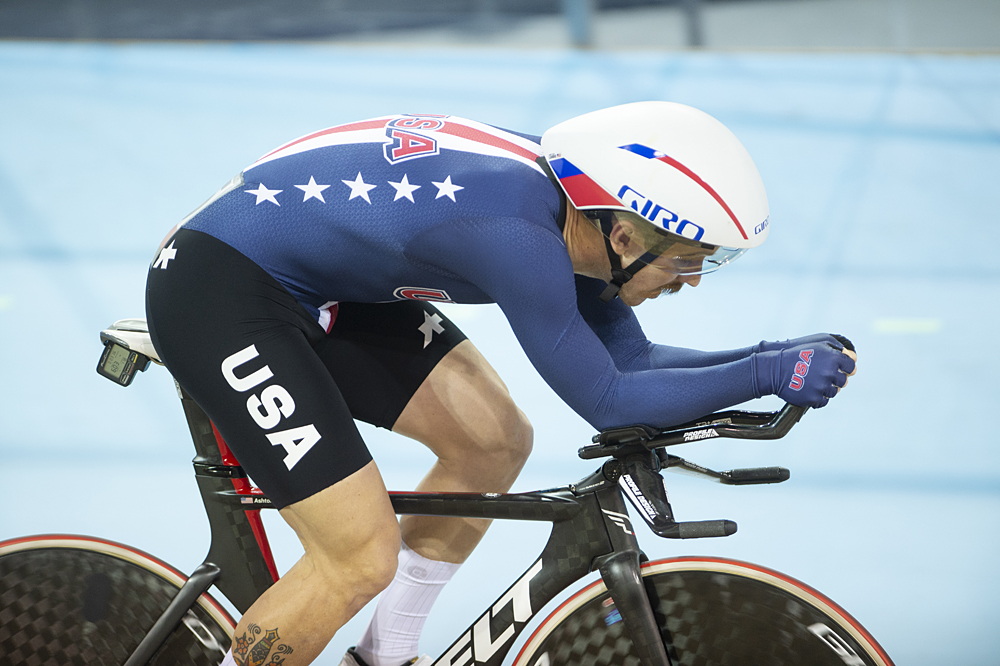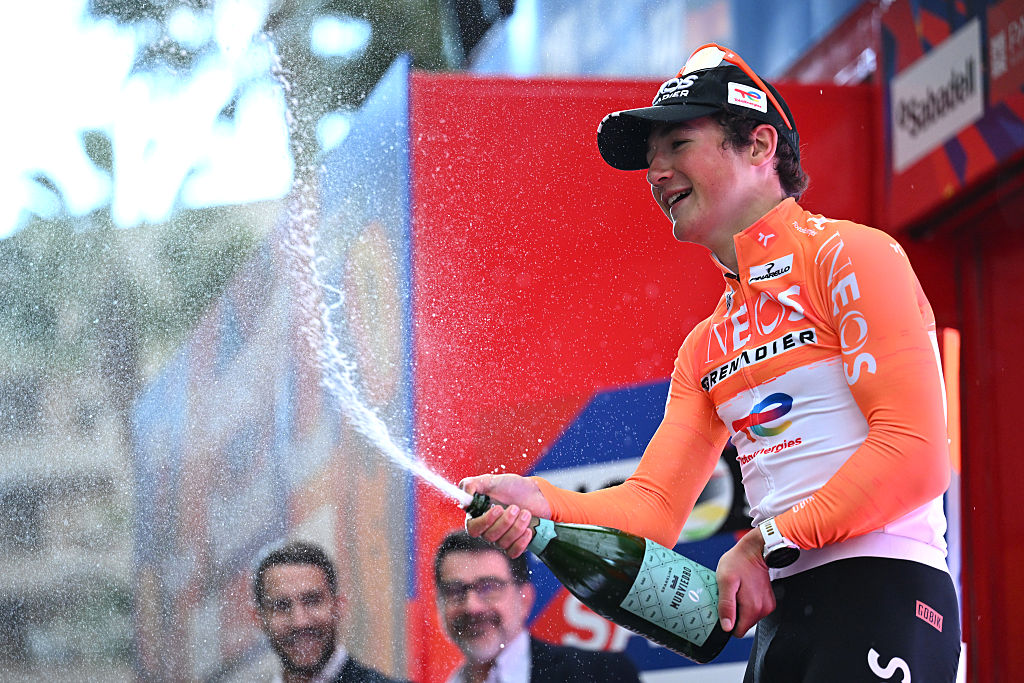Huub-Wattbike and Beat teams hit back at radical UCI track reforms
Trade team says World Cup changes will be 'brutally destructive for the sport we know and love'
The latest race content, interviews, features, reviews and expert buying guides, direct to your inbox!
You are now subscribed
Your newsletter sign-up was successful





The British-based squad Huub-Wattbike and the Dutch Beat Cycling Team have hit back at the UCI's decision to shake-up track racing and only allow national teams to compete in the prestigious World Cup events, claiming they will be cut out of major racing.
In an open letter, published on Monday and addressed to the UCI president David Lappartient, the Huub-Wattbike team said the changes "have severe implications for us and will ultimately kill off the existence of trade teams completely," describing the reforms as "brutally destructive for the sport we know and love."
The Beat Cycling Team launched a petition against the changes and warned they "investigate the legal base for these measures and are of the opinion that effectively canceling our team can under no circumstances be done without proper compensation for our damages."
They explained they don't specifically seek compensation but simply want "to be able to continue to operate our UCI track team as we do today."
Former Olympian and five-time world champion Theo Bos is part of the Beat team, and his teammate Matthijs Buchli won the Keirin event at the World Cup event in London in December.
The Huub-Wattbike team has embarrassed some leading nations in pursuit events in recent years, using technology and aerodynamics to eke out every hundredth of a second. The team won a silver medal in the Milton round of the World Cup in Canada, with the USA's Ashton Lambie joining the team for the Berlin event.
Last week, the UCI announced a major overhaul of track cycling, with the track world championships moved from March to October, with track racing returning to a European-summer sport despite most racing now done on indoor velodromes. The World Cup events, which are vital for Olympic qualification but are held all over the world, will be reduced from six to three events in 2020/21 and will be held between July and September rather October and January.
The latest race content, interviews, features, reviews and expert buying guides, direct to your inbox!
The new series will be called the Track Cycling Nations' Cup. Teams will compete in national colours, effectively stopping trade teams from competing at the highest level, undermining their existence.
There are currently 38 registered UCI professional track teams, and the number has steadily grown since the UCI allowed trade teams to compete in the World Cups beginning in 2006. Before that year, there were only a handful of trade teams in track cycling.
The UCI Management Committee agreed to create a new track series for the winter of 2021/2022, with the aim "to increase the appeal of track cycling thanks to a dynamic and attractive format, ideal for television and for spectators present at the event, and simple to understand and follow, even for audiences new to the sport." Eventual details are expected to be revealed in September but there will be no place for trade teams.
Track cycling will be part of the new 'combined' world championships set to first take place in Scotland in August, 2023, when all of the cycling disciplines will compete for the rainbow jerseys in the same event, and the UCI said the change to the track calendar will "ensure consistency" of the track season in the years of the combined worlds.
The Beat Cycling team said they were taken by surprise by the changes and directly called on UCI President David Lappartient "to reconsider your plans and design a strategy that truly develops track cycling. We would like to be recognized in this process as a key stakeholder and are available to contribute to a new approach."
The Huub-Wattbike team suggested the UCI's changes had been "roundly condemned across social media and news outlets by athletes and fans alike" and said they were "left with no alternative but to challenge the announcement and seek to ensure we do actually have Cycling for All and not just for a select few nations."
The teams riders and sponsors warned Lappartient that "If drastic changes aren't made to these plans then you will be left solely responsible for the consequences, as the sport of track cycling is forced to battle head to head with road racing without the support of trade teams, their characters, personalities and all of their commercial partners."
In an email to Cyclingnews, a UCI spokesman declined to comment on the specifics of the open letter but did provide a comment outlining the reasoning behind the decisions.
"In line with the pledge made by UCI President David Lappartient, the UCI is strongly committed to serving its 194 member National Federations, making this one of its priorities. The decision has therefore been taken to reduce the financial burden on them by decreasing the number of UCI World Cup rounds from six to three," the UCI said in the statement provided to Cyclingnews.
"In addition, to make access to the UCI Track Cycling World Championships easier for endurance riders who encounter difficulties obtaining leave from their road teams in March, the decision has been made to move the new UCI Track Cycling Nations’ Cup (formerly UCI World Cup) to the summer and the UCI World Championships to October after the end of both the UCI Track Cycling Nations’ Cup and the UCI Road World Championships. The Nations’ Cup will be a qualifying pathway for nations to the Track Worlds and part of a 3-layer qualification process (Continental Championships, Nations’ Cup, World Championships) for the Olympic Games.
"As mentioned in the announcement, the UCI Management Committee has also agreed to launch a new innovative series, the first edition of which will be organised between November 2021 and February 2022, aiming to increase the appeal of track cycling thanks to a dynamic and attractive format, ideal for broadcast and for spectators on-site. Participation regulations and other aspects of the track cycling reform will be communicated after the next UCI Management Committee meeting, in September 2019."

